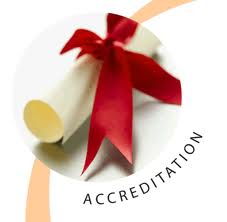EarlyChildhood Education Helps to Improve the Quality of Care

In recent news, a school-age boy in a Mississippi Child Care Center was left alone with some infant/toddlers. During the time that the 9-year old was left alone with the toddlers, he repeatedly hit and kicked the toddlers.
As I watched the video, I felt sick to my stomach. In fact, after watching the video, I became angry at the fact that this abuse happened in a childcare facility. Then I thought about the qualifications of the caregiver that was responsible for those infant/toddlers.
In my years of working with children, I have discovered that hiring qualified early childhood professionals assures that the children will receive high quality care and education.
In most states, the requirements for teachers are very minimal. For example, in the state of Missouri where my childcare center is located, the bureau of childcare only requires the following for childcare workers to work in a childcare center: (not including directors)
- 12 training hours a year
- Hepatitis A
- PPD Skin Test
- Back Ground Screening
- Physical
You may have already noticed that college education is not a requirement to work with children. However, in the public school system, the teachers must have a Bachelor’s Degree along with continued professional development hours.
Studies have shown that the most crucial ages of brain development is between the ages of 0-5; however, our young children are in the hands of under educated professionals everyday.
When I started my home daycare in November 1998, it took me a little over a year to realize that I must go to school to be educated on how to effectively care for young children. In 2000, I enrolled in a Child Care field based program through a Local Community college, which paid for my early childhood education. After completing nine college credit hours in early childhood education, the quality of my program improved dramatically. Furthermore, after only completing 12 college credit hours in early childhood education, I was ready to move my preschool out of my home to provide quality care to more children.
I shared my story with you to say, that I believe that having formal early childhood education improves the quality of care that children receive.
If you own a childcare center, I want to challenge you to reflect on the educational requirements of the staff. If you are not happy with the quality of care that your staff provides; raise your educational standards.
Are you a home provider? If so, I challenge you to consider taking some early childhood classes or work toward receiving a CDA Credential. As you further your education, you will feel more like a Preschool teacher and the quality of care that you provide will begin to improve as you begin to implement the knowledge that you receive for a formal education.
If you are worried about the cost of a formal college education, I suggest that you check with your local Child Care Resource and referral agency for some financial assistance . **Be sure to inquire about a T.E.A.C.H Scholarship.
Also, the United States Government offers Pell Grants to help pay for college and you or your staff members just may qualify.
Finally, I want to leave you with this formula that I developed about 6-years ago and I strongly believe it is the key to quality care:
Educated+ Trained Early Childhood Professionals =Quality Child Care
I look forward to reading your thoughts about this blog post. Feel free to share your goals to improve the quality of care in your childcare business. Thanks for all that you do for young children!
Shiketa Morgan
Resources to Improve the Quality of Care
Quality Child Care Center eClub
7 Steps to High Quality Care eCourse (Free )




You must be logged in to post a comment.